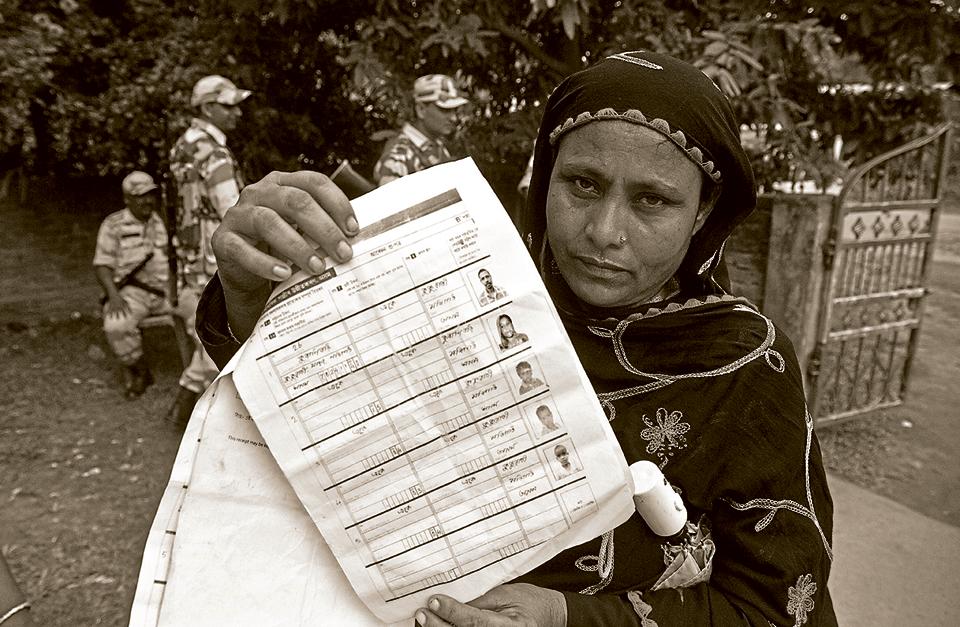prasad1
Active member
At a public tribunal held in Delhi on September 8-9, 2019, victims of the NRC process in Assam testified in gripping detail to the long-lasting and extreme hardships to which they had been exposed. Families were separated, and either incarcerated or put in detention centres, by an entirely arbitrary quasi-judicial process, leading to deprivation, deaths, and even suicides.
A seven-member jury of eminent citizens, including former justices of the Supreme Court and a retired Chief Justice of Delhi High Court, heard the presentations at the tribunal. They noted, inter alia, “It is not just mental distress which is killing people; there are inhuman processes involved in the whole NRC which is forcing people to die in most unfortunate ways. Literally millions of people were asked to appear before the verification officers in faraway places multiple times to prove their citizenship credentials. In most cases, the verifications were held outside the home district...People died in the NRC queues, in vehicle accidents attending arbitrary long-distance hearings on very short notice, and of heat strokes.”
They added, “In sum, the jury would like to emphasise that in the context of Assam as well as in the country, citizenship, as the right to have rights, is one of the most basic, fundamental human rights in modern societies. Deprivation of citizenship must follow the most rigorous procedure available; the overriding concern must be fairness, not quickness or efficiency.”
These words were not lightly spoken and it is this brutal experience that is now sought to be extended across India. As implemented in Assam, the NRC considered each individual to be a presumed non-citizen who had the responsibility to prove otherwise. The government has declared the NRC and CAA to be discrete processes, unconnected to each other. Putting sophistry aside, all evidence would point to a different intent. The NRC, with its tortuous, long drawn out processes, with the State, or even a remote individual, authorized to question the citizenship of any individual at any time, and even reopen settled cases, would serve as a permanent Sword of Damocles over all Muslim citizens of India. As already being touted in public speeches, the CAA, providing for Indian citizenship to non-Muslim ‘refugees’ from India’s Muslim majority neighbours, is to reassure Hindus of their future. The NRC and the CAA are to work in tandem, one to intimidate and the other to reassure. The objective would be to treat Muslims as a different class of citizen. From citizenship by birth — jus soli — of our founding days we would move seamlessly to ethnic democracy and, eventually, ethnocracy. And one must wonder at the proposed use of the projected vast detention centres in many states.

 www.hindustantimes.com
www.hindustantimes.com
A seven-member jury of eminent citizens, including former justices of the Supreme Court and a retired Chief Justice of Delhi High Court, heard the presentations at the tribunal. They noted, inter alia, “It is not just mental distress which is killing people; there are inhuman processes involved in the whole NRC which is forcing people to die in most unfortunate ways. Literally millions of people were asked to appear before the verification officers in faraway places multiple times to prove their citizenship credentials. In most cases, the verifications were held outside the home district...People died in the NRC queues, in vehicle accidents attending arbitrary long-distance hearings on very short notice, and of heat strokes.”
They added, “In sum, the jury would like to emphasise that in the context of Assam as well as in the country, citizenship, as the right to have rights, is one of the most basic, fundamental human rights in modern societies. Deprivation of citizenship must follow the most rigorous procedure available; the overriding concern must be fairness, not quickness or efficiency.”
These words were not lightly spoken and it is this brutal experience that is now sought to be extended across India. As implemented in Assam, the NRC considered each individual to be a presumed non-citizen who had the responsibility to prove otherwise. The government has declared the NRC and CAA to be discrete processes, unconnected to each other. Putting sophistry aside, all evidence would point to a different intent. The NRC, with its tortuous, long drawn out processes, with the State, or even a remote individual, authorized to question the citizenship of any individual at any time, and even reopen settled cases, would serve as a permanent Sword of Damocles over all Muslim citizens of India. As already being touted in public speeches, the CAA, providing for Indian citizenship to non-Muslim ‘refugees’ from India’s Muslim majority neighbours, is to reassure Hindus of their future. The NRC and the CAA are to work in tandem, one to intimidate and the other to reassure. The objective would be to treat Muslims as a different class of citizen. From citizenship by birth — jus soli — of our founding days we would move seamlessly to ethnic democracy and, eventually, ethnocracy. And one must wonder at the proposed use of the projected vast detention centres in many states.

CAA-NRC: Lessons from the Assam experience
The government’s plan has disturbing domestic and international implications. Go back to the founding values
